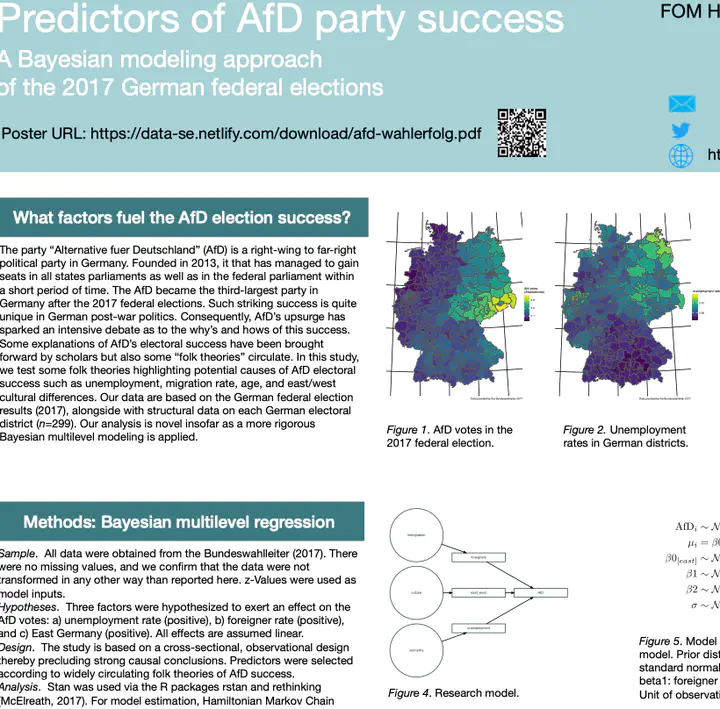Predictors of AfD party success
 Title Cover by Sebastian Sauer
Title Cover by Sebastian Sauer
Abstract
The party “Alternative fuer Deutschland” (AfD) is a right-wing to far-right political party in Germany. Founded in 2013, it that has managed to gain seats in all states parliaments as well as in the federal parliament within a short period of time. The AfD became the third-largest party in Germany after the 2017 federal elections. Such striking success is quite unique in German post-war politics. Consequently, AfD’s upsurge has sparked an intensive debate as to the why’s and hows of this success. Some explanations of AfD’s electoral success have been brought forward by scholars but also some “folk theories” circulate. In this study, we test some folk theories highlighting potential causes of AfD electoral success such as unemployment, migration rate, age, and east/west cultural differences. Our data are based on the German federal election results (2017), alongside with structural data on each German electoral district (n=299). Our analysis is novel insofar as a more rigorous Bayesian multilevel modeling is applied.